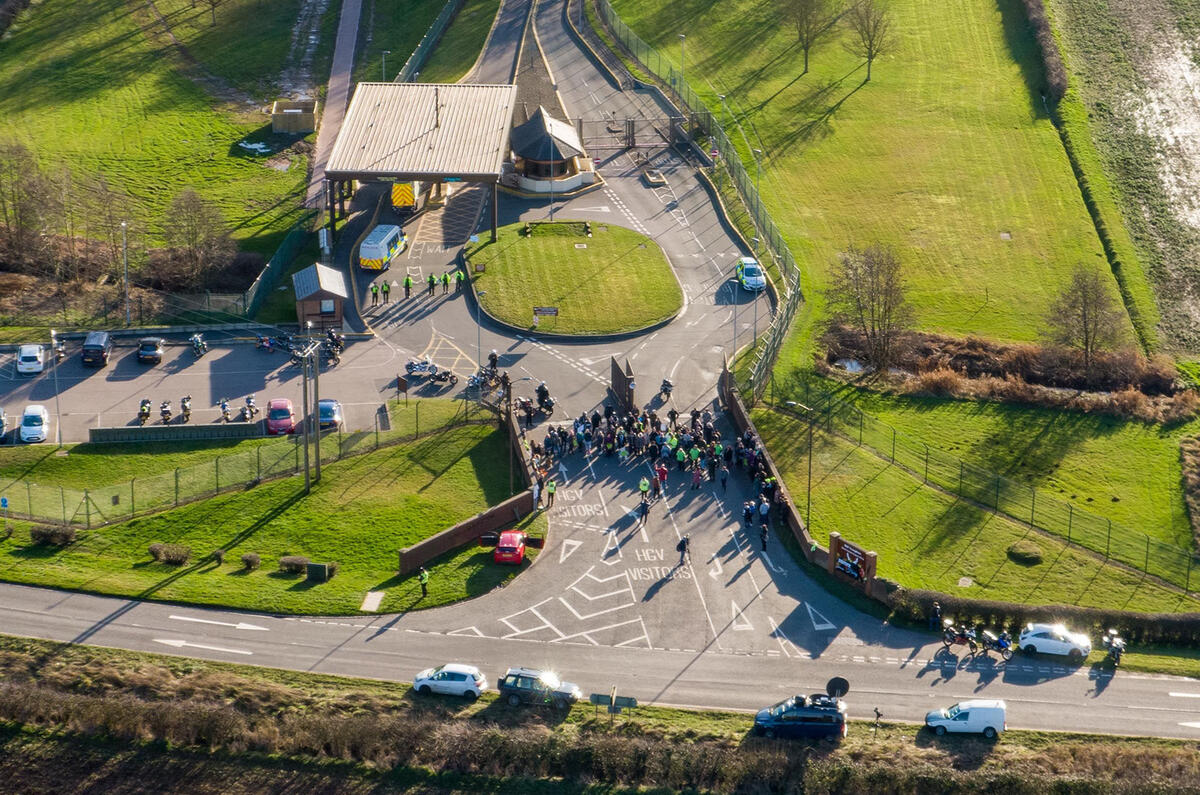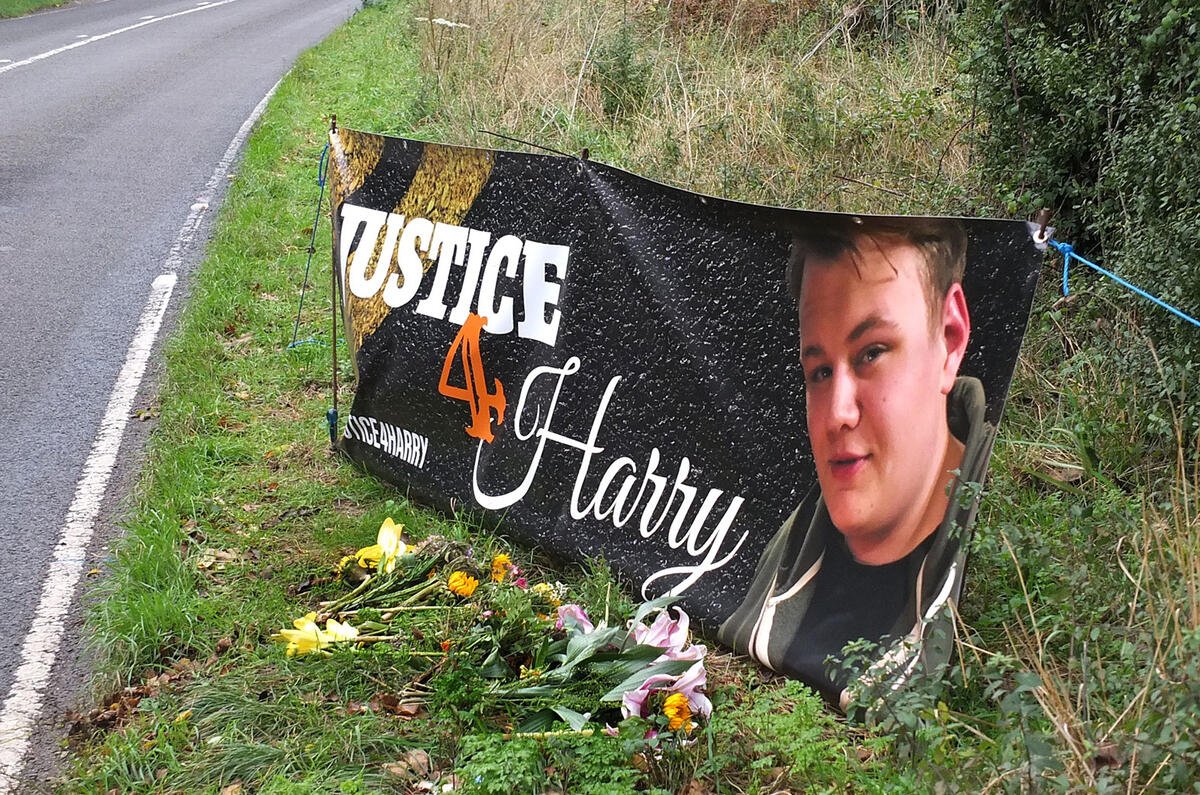She was once a CIA agent. That’s what we learnt recently about Anne Sacoolas, although it feels like we find out something else unsettling about the traffic collision she was involved in every week.
Sacoolas is the American charged with death by dangerous driving after allegedly crashing into and killing Harry Dunn, 19, who was riding his motorbike near RAF Croughton – a secret US military listening post near Brackley, Northamptonshire – last August.
Sacoolas reportedly exited the gates at Croughton and turned on to the wrong side of the road for long enough to collide with Dunn. We’ve also learned that it took 40 minutes for an ambulance to reach the scene. Harry later died in hospital.
At first, Sacoolas co-operated with the police, but after an initial interview, she claimed diplomatic immunity and fled the country.
What else have we learnt? That the US military doesn’t routinely train its UK-based personnel to drive here. When it does, incidents reduce by 50%. We’ve also learnt that, as the prime minister conceded last week, the UK-US extradition treaty is skewed in favour of the US.
We’ve learnt the US secretary of state, unprecedentedly, is disinclined to grant the UK’s extradition request for Sacoolas, and that she won’t return voluntarily. Her lawyer, astonishingly, claimed “a criminal prosecution with a potential penalty of 14 years’ imprisonment is simply not a proportionate response”, as if the UK’s justice system, considered a paragon of fairness and rationality by the myriad of nations who modelled theirs on it, is cruel and deficient.
And we’ve discovered how this series of setbacks and revelations, which would break most of us, has exposed the extraordinary resolve of Dunn’s family and their supporters. If the US has underestimated them (as I think president Donald Trump did when he met Harry’s parents, only to tell them that Sacoolas was waiting in an adjoining room, in what the family described as an “ambush”), I think it has made a grave mistake.
As it stands, Dunn's family are still exploring options, including pushing for Sacoolas to be issued an Interpol ‘red notice’, which could lead to her arrest anywhere outside the US, or to be tried in her absence.
There’s still disagreement between the family and Foreign Office over whether Sacoolas had, or was entitled to, diplomatic immunity – a vital tool for allowing government relations to function without malign interference from host nations. But it wasn’t designed for incidents like this.
Perhaps I’m not impartial. I’m a motorcyclist, it’s not two years since my friend Henry Hope-Frost was killed on his bike and my children were friends with Harry Dunn, who was very kind to them when we moved to the area. They tell me his friends still feel the injustice keenly.










Join the debate
Add your comment
Thats very sad and she should
Thats very sad and she should be tried for the crime, but I read something fairly recently and I am trying to post the link to an incident where an Englishman in Hong Kong ran over and killed a taxidriver getting out of his car. He is now back in the UK free and the incident has been hushed up. The only reason I know this was because I was on business there fairly recently and it was reported in the local news but not here.
I think the news was burried in the news due to the local riots there and the coronavirus thing
I would like to know whats going on, is it a case of one law for some and another non existant one for people that seem to matter little or not at all to others.
Hmmm
Sorry Mr Prior, but there are few lessons to be learned....
Other than the fact that diplomatic immunity exists, and that it has unfortunate consequences sometimes. It is also difficult to be objective when you have a connection to the subject matter.
There can be no argument that diplomats are required, and that they have to work in countries with strange regimes, laws and customs. Look up the case of Jamie Harron, from Scotland, who was sentenced to 3 months in jail in Dubai, for accidentally touching another man's hip in a crowded bar, where he was carrying some drinks. No one would want to work in such countries as a diplomat without immunity, if you or your spouse were going to be thrown in jail for such non-offences.
Look at the problems we have had with Russia. Instead of expelling diplomats, they would stick them in a salt mine forever, on some invented charges, if they could.
It would be unworkable to have a list of offences for each country for which a diplomat had immunity and did not, and whether it covered their spouse or not. These would no doubt differ from country to country. Nothing would ever be agreed and you would have a recruitment crisis in some countries.
Yes it is a tragedy that a child has died, but the law is what it is, and what can Boris Johnson realistically demand? That the international rules on diplomatic immunity be torn up and re-written? Permanently? Or just for this case? It doesn't matter what nationality the driver is. It isn't about not offending Trump (he's done that already with Huawei and possibly with a quote from China to build HS2). It's about international law and conventions.
And whilst it is a tragedy for the victim's family and friends, these are isolated incidents. It is rare that a diplomat/spouse kills someone, or a criminal is sheltered in an embassy for years before being expelled. There is no need to over-react.
Donald Trump comes ahead of justice
What won't help Harry Dunn's family's case for justice was not only Boris Johnson's rather lame comments about extradition but also, since the tragic accident, any real attempt from him to try and do anything or force the USA's hands in to co-operating. And this is all due to the fact that Boris is a very close friend of Donald Trump while he wants the USA to be the UK's closest friend, ally and trade partner, so he'll do anything not to upset the relationship or p*ss off Trump.